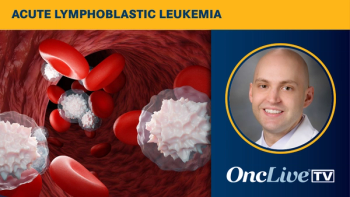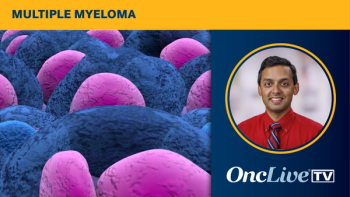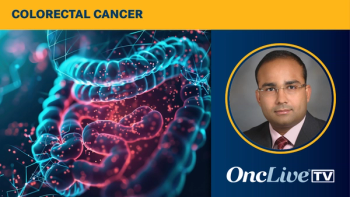
Dr Huddart on the FDA Approval of Erdafitinib in FGFR3+ Urothelial Cancer
Robert Huddart, PhD, discusses the FDA approval of erdafitinib for patients with FGFR3-altered metastatic urothelial carcinoma.
Robert Huddart, PhD, leader, Clinical Academic Radiotherapy Team, The Institute of Cancer Research; professor, urological cancer, honorary consultant, Urological Oncology, The Royal Marsden NHS Foundation Trust, discusses the significance of the FDA approval of erdafitinib (Balversa) for patients with FGFR3-altered metastatic or locally advanced urothelial carcinoma.
On January 19, 2024,
The standard of care for patients with metastatic and locally advanced urothelial cancer was historically chemotherapy, with immunotherapy emerging as another treatment option over the past few years, Huddart says. However, patients have had limited treatment options after progressing on these therapies, Huddart notes. Therefore, the FDA approval of erdafitinib for patients with FGFR3-positive urothelial cancer will help many patients with this disease, Huddart emphasizes.
Erdafitinib is the first approved treatment for patients with urothelial cancer that targets a specific driver mutation, Huddartemphasizes. Patients with other tumor types, such as lung cancer, have already benefitted from targeted therapies. Accordingly, the agent’s approval has laid the foundation for the use of targeted therapy in urothelial cancer, according to Huddart. The efficacy of erdafitinib is limited to patients with urothelial cancer harboring FGFR3 alterations, which are present in approximately 10% to 20% of the total urothelial cancer population, Huddart explains. However, patients in the THOR study who received erdafitinib achieved a confirmed overall response rate of 35.5% (95% CI, 27.3%-43.9%). Moreover, the median overall survival was significantly improved with the agent, at 12.1 months (95% CI, 10.3-16.4) vs 7.8 months (95% CI, 6.5-11.1) with investigator’s choice of second-line chemotherapy (HR, 0.64; 95% CI, 0.47-0.88; P = .0050), Huddart concludes.



































